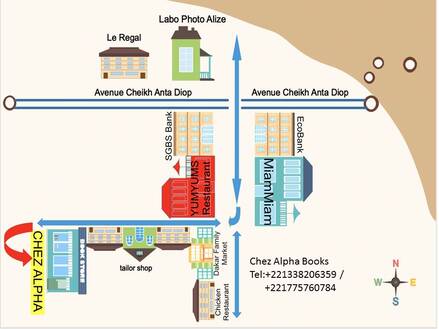I worked with a student who had selected a university in as I can best describe it, “the middle of nowhere.” He came to Chez Alpha for assistance after having been accepted and we worked with him through the visa process and pre-departure. Despite our best efforts to provide him student with a thorough and well developed training related to culture, language, the academic differences he would confront and more, this student had one desire and that was to go out! In addition, we encouraged him to consider staying in the residence hall as opposed to a long term home-stay. Yet, he was unwilling to change his mind so we delved into preparing him for living abroad with another family and the varied issues he might confront including food, religion, different family dynamics, pets and more.
What we did not prepare him for was a family who refused him housing unless he was willing to submit to an HIV test! For them African students equaled HIV and they needed an assurance that he was not HIV positive. When he called, full of shame and despair to share what had happened, I told him to go to the residence hall. For once he listened and was able to move quickly. This moment shaped his initial outlook on education abroad, and it would take months for him to move past this experience.
This week, I was contacted by another student preparing to study abroad. The student was hesitant as he had been seeing information on various blogs and Facebook posts about students from Africa being examined upon arrival at both the airport and campus for symptoms of Ebola. In addition, he feared receiving a letter saying that as he was coming from an Ebola affected country admission was delayed or cancelled. He asked me what to do and with great anger said to me, “Africa is always a problem!”
According to the 2012-2013 data from the Institute of International Education (IIE), Nigeria, Ghana, Cote D’ Ivoire, Senegal and Burkina Faso remain the top five countries of origin for students from West Africa studying in the U.S. The data indicates that Nigeria had 7316 students and Senegal had 688 and while these numbers may not equal students coming from Asia they do reflect global exchange, knowledge sharing along with revenue and this is not always a problem.
In response to his comment that “Africa is always a problem!”, I had two answers for him. I started by saying, “If you were my child, I would ask that you wait as there can be an educational opportunity available for you at home. Also, the possible bias, racism and outright ignorance you may confront during this time may be such a major negative factor that it will outweigh all of the positive experiences. Second, Africa has fought and continues to fight Ebola as best she can. When the first case was reported in Senegal, there was a major movement of support and strong public awareness campaigns as a community rallied to confront this virus collectively. From Facebook to government offices and nonprofit agencies, people were involved and remain involved today. Certainly there was an immediate sense of fear, but the young man who came to Dakar from Guinea was not verbally attacked in the most brutal manner. Most people spoke of him from a human perspective and with great empathy. Whatever challenges that may be ahead regarding the Ebola virus and even what casualties that may occur the preservation of dignity, compassion and empathy for other people in another house, city or country is the key to survival.”
I assured him that Africa is not always a problem. In the case of Ebola, it may have been that an international community remained silent for much too long. I reminded him that it is moments like this when we are reminded that I am indeed my brother’s keeper! My advice to him was, as a student, you may want to delay your study abroad, pursue some courses at home all the while understanding that in the fight against Ebola, Senegal stood united and handled their business. As we watch “greater” nations reduced to finger pointing, media hysteria and all out cruelty towards one another ultimately these are major life lessons and one does not need to travel abroad at this time to learn them.

 RSS Feed
RSS Feed
